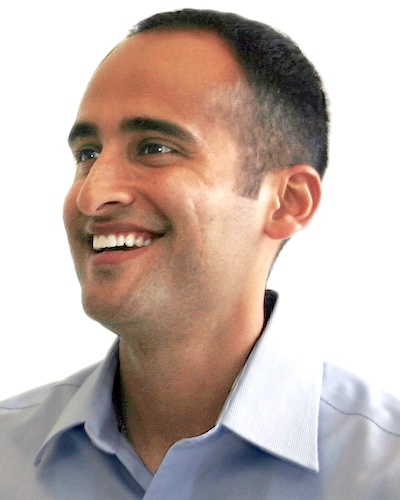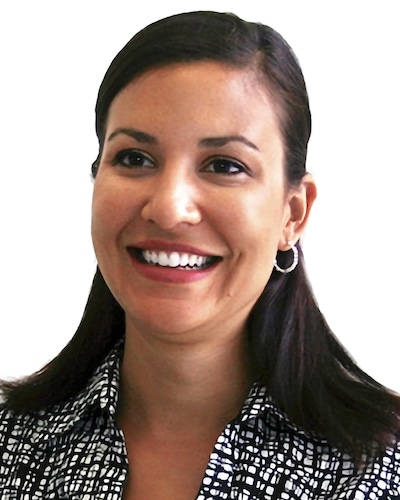Student Blog
What are OS/OT?

The RCFE Challenge ⟩
March 19, 2013, by Ricky
Externships What are OS/OT?
Just got done with my 2-week Leadership Externship. I got to split my time between 2 assisted living companies. One company operates 2, 6-bed homes; and the other runs a campus with capacity/licensure for 86 residents. The technical name for places like these is Residential Care Facilities for the Elderly (RCFEs). If you aren’t really familiar with the different residential settings that are available for older adults, you may think of an RCFE as a convalescent or nursing home, but sometimes these names get jumbled. The best way to think of them is to picture a continuum of assistance/care provided: at one end you will see places that provide little to no care, and at the other end you will find places that offer complete care (like feeding or even managing life-supporting apparatuses). RCFEs are [supposed to be] in the middle of this continuum, offering some support/care. I was really surprised to observe, however, that RCFEs will pretty much accommodate anybody over the age of 60. With the baby-boomer generation coming of age, I recognized the increasing demand for RCFEs. As a future OT, with an administrative background, I know that this industry holds great opportunity for OT; so I had to check it out. I spent a better part of my time following the administrators around as they managed the day-to-day functions. It was so interesting to get a peek into the thought processes of the people making the tough business decisions at these RCFEs. Both places offered memory-care, which is what they call the level of care provided to people with Alzhiemer’s and other diagnoses that manifest into dementia. It was neat to see the level of care provided to these residents. I also had a chance to educate the administrators on the value of OT — after providing one of the administrators with an overview of what we did, and what we could do for his residents, he seemed very perplexed as to why (to his knowledge) none of his 86 residents were receiving OT. I was surprised too. The fact is: we have the skills that RCFEs desperately need, and we are desperately underrepresented in the industry. There are quite a few reasons behind our being left out of RCFEs, but that makes for a whole series of blog entries, so I’ll spare ya’ll. Bottom line: RCFEs need OT, and OT needs some strong advocates . . . are you up for the challenge?
⋯

Mujeres Fuertes ⟩
March 19, 2013, by Kendra
Community Externships What are OS/OT?
These last two weeks I have been at my externship. This is our opportunity to ‘bridge the gap’ in our learning or expand upon specific areas of interest before we are released into the wild, wild world of REAL WORK!
I have chosen to focus on learning about the intricacies of creating, operating and funding a non-profit. The non-profit would support the current group a classmate and I run, Mujeres Fuertes. This group is a perfect example of how my education at USC OT has the potential to transfer directly to the real world. We designed the group in our Occupation-centered programs for the community class last fall. The response was so positive, we received funding from a local non-profit to start implementing the group!
Wow, right?!
The group has been an amazing success. Through our needs assessment, we were able to identify that people, specifically women, living in the Boyle Heights neighborhood of LA, have an increased incidence of chronic illness, many of which are lifestyle related and preventable. Every other week we meet with two groups of 10 women for an hour, set goals and learn about stress management, nutrition, and exercise. It’s also an opportunity for the women to become health advocates that promote change at the personal, family, and community level.
We feel so confident a group like this can have rippling effects throughout many communities, we are now taking it to the next level, obtaining more funding and potentially establishing a non-profit. Its a lot to learn, but California is incredibly supportive of little programs like ours.
Each time I feel nervous or overwhelmed, I think of the women who call me their inspiration, that are making small changes every week to improve their lives. I cannot let them down, and I’m grateful for the chance to learn how to run a business, so that I won’t.
⋯

Inspired ⟩
February 12, 2013, by Paula
Classes What are OS/OT?
So this entry may seem to mirror Amber’s last post a bit but I have been feeling the same excitement at the progress I know that we all have made over the past years. I feel like we are finally pushing away those clouds of self-doubt that come with being a novice, wide-eyed student and are looking forward to exploring what our future careers will be with anticipation. The energy is definitely different mid-way through this final semester and it’s as though there was a transformation sometime within the winter break which really ignited the class. This is a great thing!!
Within the Motor Control elective, I have had the opportunity to meet some amazing people. My clinical observation placement is located in the Jacquelin Perry Institute (JPI) at Rancho Los Amigos National Rehabilitation Center, where I primarily follow an OTR/L who works with patients in the Stroke Rehabilitation program. I know that you have heard each of us mention Rancho by now. This rehabilitation center is certainly deserving of the highly esteemed reputation it has developed over nearly a century of providing services. The aspect of Rancho which I value most as a student is the enthusiasm for learning and the obvious effort that each member of the rehabilitation team makes to encourage students while also maintaining such a high quality of care for the people they treat each day. For every student who has started out in the clinical setting, there are those moments of, “Oh no, I cannot remember what they said about this in class,” interspersed with moments of “But, what if I do something wrong?!” It is normal; it is called ‘learning’; and it happens to us all along the way. When a location makes an obvious effort to support the learning experience and clearly has confidence in the ability of the student, as they do at Rancho, it resonates with the students.
Today during lab, a fellow student and I were told that we would be leading a co-treat with a gentleman we have observed in therapy before. We were able to evaluate, compete an occupational profile for the individual (including his prior function, changes he has experienced and what he would like to get back to doing), assess his scapular and thoracic alignment and perform scapular mobilizations to facilitate a more appropriate posture necessary to support activity in therapy. It has been so gratifying to work with people through the many different settings in fieldwork and to learn so much from each of them along the way . . . I feel like I am always saying this, but I am so looking forward to actually being an OT (soon)!
⋯

Feeling Like A “Real” OT! ⟩
February 11, 2013, by Amber
Classes What are OS/OT?
This semester I am taking several elective courses, all of which are very exciting because I have chosen to take them based on my interests. They are all very hands-on and full of practical knowledge that I will use every day in practice. The most hands-on of these elective courses is Enhancing Motor Control for Occupation. In this course we are learning how to facilitate the recovery of motor control after an individual has sustained an upper motor neuron lesion, as may happen during a stroke or traumatic brain injury. We learn different theories and techniques, such as Neuro-Developmental Treatment (NDT) and apply them to occupational therapy treatment. Best of all, the instructor is a working practitioner at Rancho Los Amigos National Rehabilitation Center and the class takes place onsite in the inpatient unit.
A requirement of this course is that I observe occupational therapists using motor control during real treatment sessions for two hours per week. One of the first patients I observed was an elderly gentleman with a goofy sense of humor. He had a diagnosis of Alzheimer’s Disease and had recently suffered from a stroke. The occupational therapist completed a visual assessment with the gentleman to confirm that he displayed left-sided inattention. This means that he consistently ignored information on the left side of his visual field. For example, when reading an eye chart he only read the right half of each line. The therapist mentioned that in subsequent sessions he would be working with the man to help him pay attention to his left side.
During the session I spoke with the man’s wife and asked her what sort of things he liked to do before he was limited by his conditions. She mentioned that he was someone who could “fix anything” and that he was an avid golfer. At the end of the session, I related these facts to the occupational therapist and suggested he may use these activities to facilitate attention to the left. He was not previously aware of the man’s interest in golf and thanked me for my input. I saw the gentleman again at his next session. The occupational therapist had found a golf ball and fashioned a club out of a cane turned upside down (a testimony to the creativity of OTs!). The therapist situated a target to the left side of the man, and like a pro he overcame his left inattention to hit the target every time! It was wonderful to feel that I had contributed to a small breakthrough for this man who is struggling to regain the function he had lost. During that session I felt like a “real” OT and it was fantastic! I’m looking forward many more moments like this in the future as I gain confidence in my abilities.
⋯

Happy OTs ⟩
February 8, 2013, by Kendra
Fieldwork What are OS/OT?
I have had the awesome opportunity to interview at a couple of incredible fieldwork sites this past week. And while these opportunities are definitely amazing and a dream, what makes me even more excited is the confidence I will have that where ever I choose to go, happy OTs will greet me when I’m there.
Did you know that OTs are some of the happiest professionals in the work place? Did you know that OT is one of the top ten degrees that pays you to play?
I love those statistics. And they are so true. When you walk into an OT clinic or OT rehab unit, you’re greeted with smiles. You see people working together with other therapists and actually ENJOYING what they do.
People this is RARE!
OT offers many, many things: job security, the feeling that you’ve helped change a life. But enjoyment? Fun? The pressure to get a good job is so high these days, you don’t often think to expect happiness throughout your career as well.
So as you make your decision about what career path you may take or whether or not choosing OT was the right choice, look at the mood of the OTs in that clinic, and when you see them laugh, smile, and share their joy, I think you’ll have the same feeling I did.
⋯





